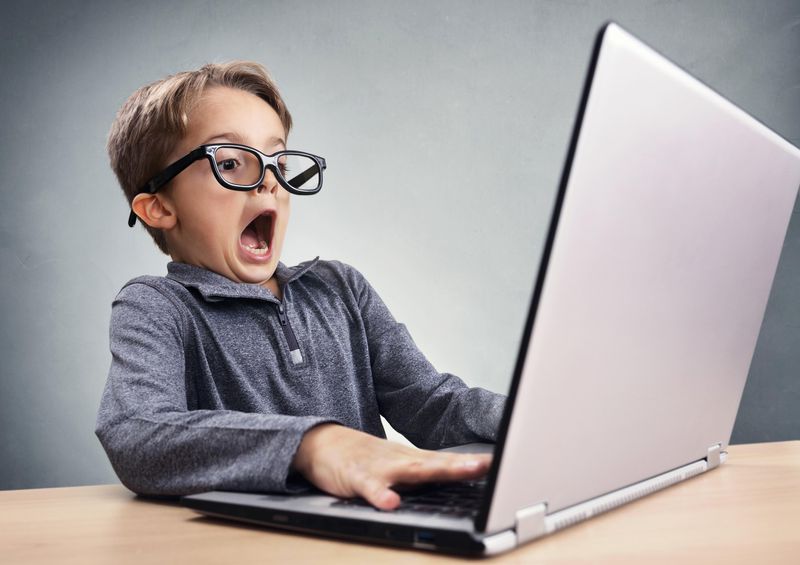Technological advancement has brought the world closer to each other, also it has merged certain classes of people, making it quite dangerous.
We’ve been reading papers about neurological effects of digital media and how it makes us function. Studies have indicated that social media has taken a shot in the recent 10 years. Nowadays, people can’t really survive without social media.
Effects of Digital Media on Child Development
Speaking on behalf of the majority of the people, we’ve become addicted to social media and by the looks of it, digital media actually has an adverse effect on child development.
There are many advantages and disadvantages of digital media, as we have been talking about it since forever.
Social media has become a study now, a notion to be discussed and researched upon. However, parents have been asking how social media plays a role in their child’s development. In my opinion, digital media plays a vital role in child development.
Children are exposed to digital media from a very young age, I remember being 10 and not knowing what a cellular device is, however, kids nowadays know how to function a device better than most of us.
This can be very alarming because not all content posted online is for children.
Social media gives a sense of openness to people, they can post anything or everything they wish to post. Hence you can not control what your child is viewing on the internet.
Television sets were easier to monitor, since your child couldn’t hide with it in the corner. Furthermore, this becomes more harmful when your child’s cognitive development is weak or if he/she is suffering from a mental disorder.
Drawbacks of Digital Media for Child Development
1. Uncontrolled media
Sometimes we as parents think that we can monitor each and everything our child is doing online by viewing the history or blocking certain content from your child.
Many of you might be mistaken if you think that you can monitor each and everything your child is doing on the internet.
We have kids who have become millionaires by reviewing toys and we also have a part of our world where these toys seem to be a dream.
You might never know what your child is reading, since everything on the internet and browsers can be altered. Your child is well aware of how to remove the adult marks and view whatever he wishes to view.
He/she can read disturbing things reviewed on the internet. Your kid might even end up at this blog, since none of this site has adult content so it is essential to monitor your child.
2. Pornographic material
Your kid can easily have access to pornographic material and you can’t do much about it. We have all witnessed how websites give us the wrong ads.
And now as data analytics has grown stronger over the years; nothing seems to be secure and google seems to be monitoring ad generation from within.
Pornographic material has a demoralizing effect on your child’s cognitive development. Many might argue that this is natural and everyone goes through it.
Nonetheless, it is essential for us to understand that everything has a age, and if not done at the correct age, the outcome might be disastrous.
If it seems so normal to people, why don’t you just marry your children as soon as they are born? Why wait till their 18 and able to make sensible decisions?
Arguments only make sense when they have audible reason to be countered with, or else they all go to waste.
Your child might not understand the difference between right and wrong, which might result in him/her indulging in activities with people you don’t want to know about.
3. Sensitive imagery
Sensitive imagery concerns the inappropriate content we have on social media. There are thousands of pages on Facebook and Instagram which produce (dark humour).
This kind of humour can abstrain your child from developing feelings. For example, if you were shown dark content from a very young age, today, you might not have open views about feminism or racism.
Similarly, sensitive imagery is a very broad term. As we have seen that Facebook hides certain images, for example, the terrible incident of 9/11 always has a label on it.
Social media makes sure that the person viewing the joke or content is well-aware of the repercussions.
However, your child might not think similarly. He/she might be intrigued by the hidden content and a voice inside them will make them view the content.
This can result in your child being exposed to harsh content, making him/her immune to emotional distress and suffering from lack of understanding. As parents, it is our job to make sure that our child understands the difference between right and wrong.
4. Bullying or inappropriate jokes
Sometimes the internet can be meaner than usual. We have seen people suicide due to this certain reason and it is heart-wrecking to accept what social media is capable of.
A young Indian girl committed suicide in late 2019 because of the bullying she faced on the internet.
It is essential that you make your child understand his bounds. We all need to review our ethics while posting things on social media. Social media can be beautiful and disastrous at the same time.
We have seen people earning millions of dollars via social media and also people being suicidal.
Not all jokes are appropriate for children, they should not be exposed to adult jokes till they’re 16. This results in your children being exposed to sexual desires which are not appropriate for youngsters.
Make sure that your child is viewing appropriate content and the media is controlled. You can always contact your service provider to ban websites and ads which might be harmful to your child. One-click can make your child reconsider his/her choices.
I remember finding pornographical material on the internet via ads and now you can find those links from thousands of social media pages.














